Greta Greco
The zoo of Fairness metrics in Machine Learning
Jun 11, 2021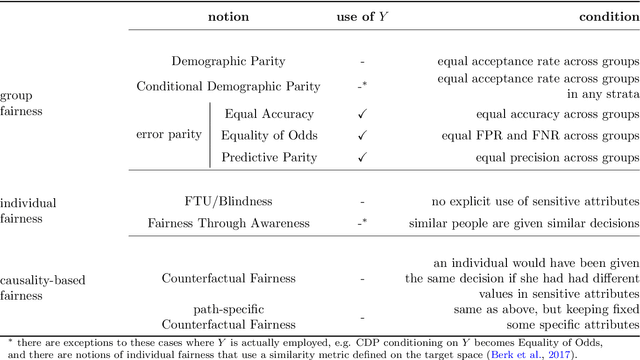
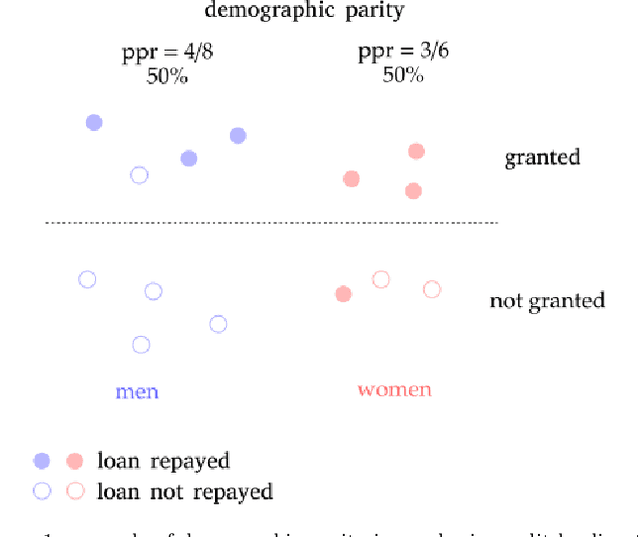
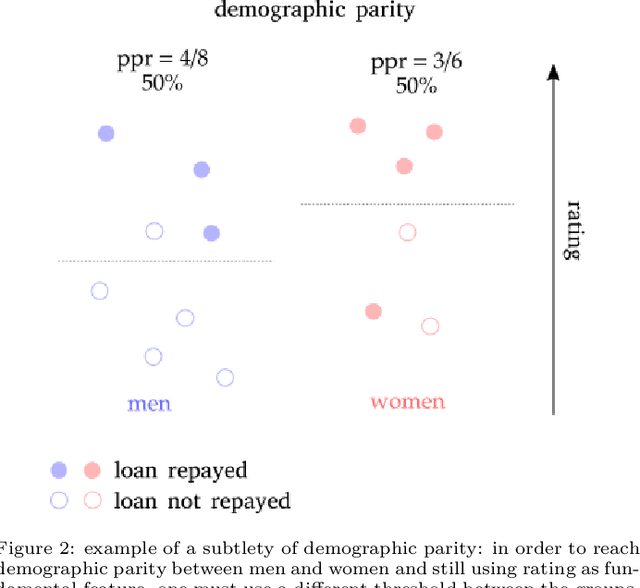
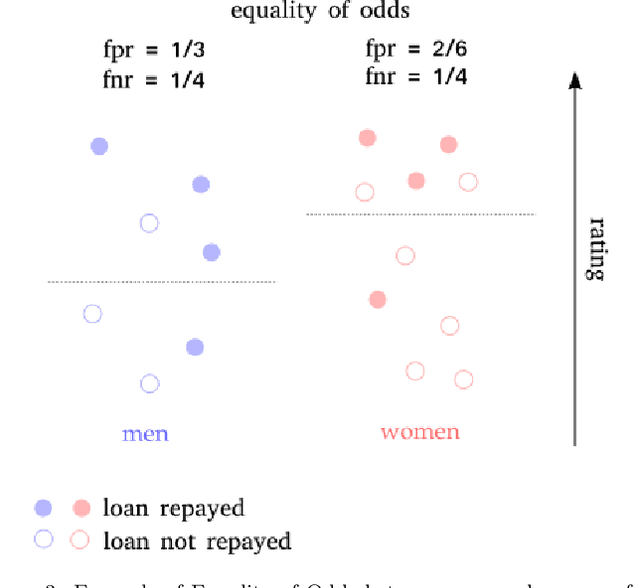
Abstract:In recent years, the problem of addressing fairness in Machine Learning (ML) and automatic decision-making has attracted a lot of attention in the scientific communities dealing with Artificial Intelligence. A plethora of different definitions of fairness in ML have been proposed, that consider different notions of what is a "fair decision" in situations impacting individuals in the population. The precise differences, implications and "orthogonality" between these notions have not yet been fully analyzed in the literature. In this work, we try to make some order out of this zoo of definitions.
BeFair: Addressing Fairness in the Banking Sector
Feb 04, 2021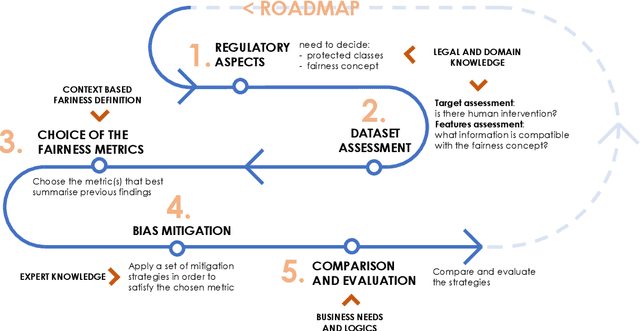
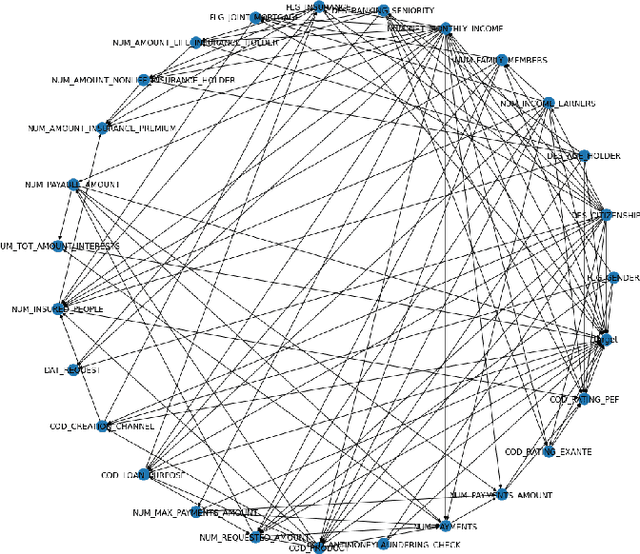
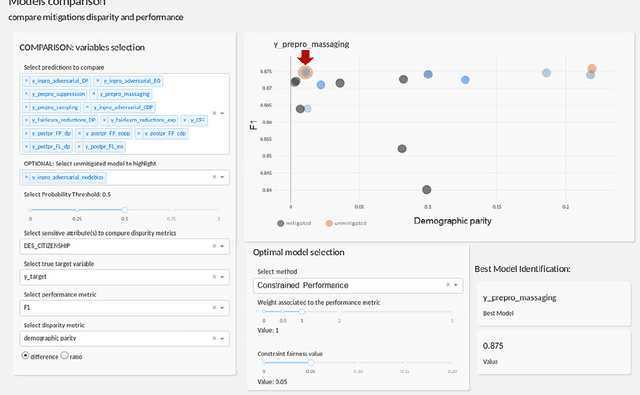
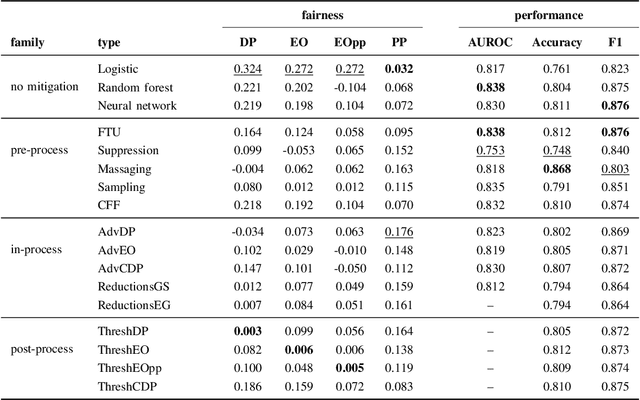
Abstract:Algorithmic bias mitigation has been one of the most difficult conundrums for the data science community and Machine Learning (ML) experts. Over several years, there have appeared enormous efforts in the field of fairness in ML. Despite the progress toward identifying biases and designing fair algorithms, translating them into the industry remains a major challenge. In this paper, we present the initial results of an industrial open innovation project in the banking sector: we propose a general roadmap for fairness in ML and the implementation of a toolkit called BeFair that helps to identify and mitigate bias. Results show that training a model without explicit constraints may lead to bias exacerbation in the predictions.
 Add to Chrome
Add to Chrome Add to Firefox
Add to Firefox Add to Edge
Add to Edge